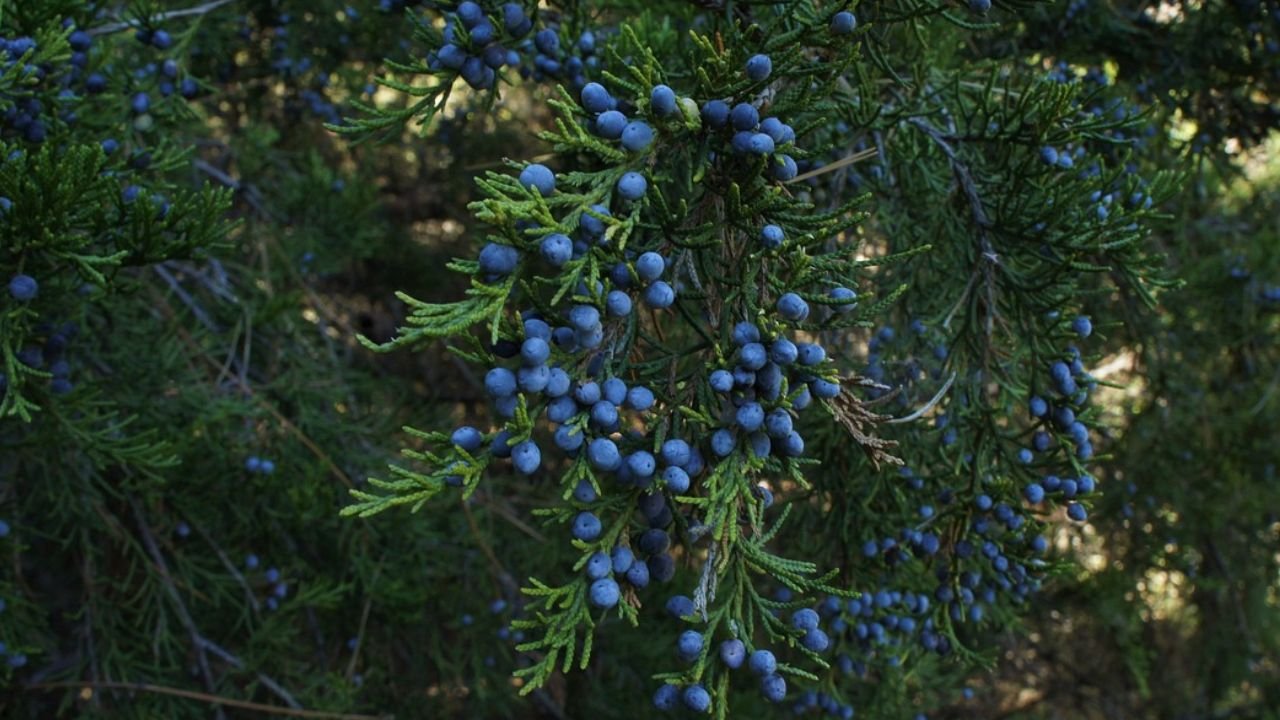The Juniper plant has been used in various traditional medicinal systems for centuries. Its rich history and wide range of applications make it an important herb. In this article, we will learn about its natural habitat and other facts.

Scientific Name
Juniperus communis
Synonyms
Juniper Berry, Common Juniper, Baccae Juniperi
Family
Cupressaceae
Habit
Juniperus communis is a small, evergreen shrub or tree that typically grows to a height of 1-6 meters. It has needle-like leaves that are arranged in whorls of three and it produces small fruits that look like berries. The plant is dioecious, meaning that the plant will be either male or female.
Habitat
The juniper plant is native to a vast area including North America, Europe, and Asia. It thrives in well-drained soil and can be seen in mountainous areas. Junipers are resilient and can grow even in poor, rocky soil.
Common Name
Juniper
Chemical Composition
The juniper plant is rich in various chemical constituents like:
- Essential Oils: Comprising mainly α-pinene, myrcene, sabinene, and limonene.
- Flavonoids: Such as quercetin and rutin.
- Tannins
- Glycosides
- Bitter Principles
Plant Parts Used
Berries, needles leaves, and wood
Properties
Ayurvedic Properties
Rasa (Taste): Pungent, Bitter, Virya (Energy): Heating, Vipaka (Post-Digestive Effect): Pungent, Guna (Quality): Light, Dry
Therapeutic properties
Its Therapeutic properties are as follows:
- Antiseptic: Helps prevent infections.
- Diuretic: Promotes urine production.
- Anti-inflammatory: Reduces inflammation.
- Antimicrobial: Fights microbial infections.
- Carminative: Relieves flatulence.
- Stomachic: Improves digestion.
- Emenagogue: Stimulates menstrual flow.
- Antirheumatic: Reduces symptoms of arthritis.
Uses of Juniper
- Digestive aid: Its berries have been traditionally used to enhance digestion and relieve problems like bloating and indigestion.
- Urinary tract health: It has diuretic properties due to which, it can often be used to support urinary tract health and treat conditions like cystitis.
- Respiratory health: It has been used in traditional medicine to alleviate respiratory conditions like bronchitis and asthma.
- Arthritis and joint pain: Its anti-inflammatory properties make it useful in managing arthritis and joint pain.
- Skin conditions: Juniper oil can be applied to treat eczema, psoriasis, and fungal infections.
- Detoxification: It can also be used to flush toxins out of the body.
- Aromatherapy: Its essential oil can be used in aromatherapy to reduce stress and anxiety.
You can include Juniper in your diet in the following ways.
- Culinary Uses: Juniper berries are often used as a spice in cooking, especially in European cuisine. They add a distinctive flavor to meat dishes.
- Juniper Herbal Tea: To make a tea, crush 1-2 teaspoons of dried juniper berries and steep them in hot water for about 10-15 minutes. Strain the berries before drinking.
- Juniper Infused Oil: An infused oil can be made by soaking juniper berries in a carrier oil for several weeks.
Precautionary Measures
It offers many health benefits, but many people should use it with caution. These include:
- Pregnancy and breastfeeding women
- People with kidney disorders
- Dosage should be limited
- If allergic reactions occur
Conclusion
The juniper plant has been a notable herb in the world of natural medicine due to its rich history. You can easily identify it by knowing about its habitat and nature. It benefits us in many ways. However, it is necessary to consult a doctor while using it.
Remember, before starting any new wellness regimen, it’s always best to consult with a healthcare professional to ensure it is suitable for your specific needs and circumstances.








